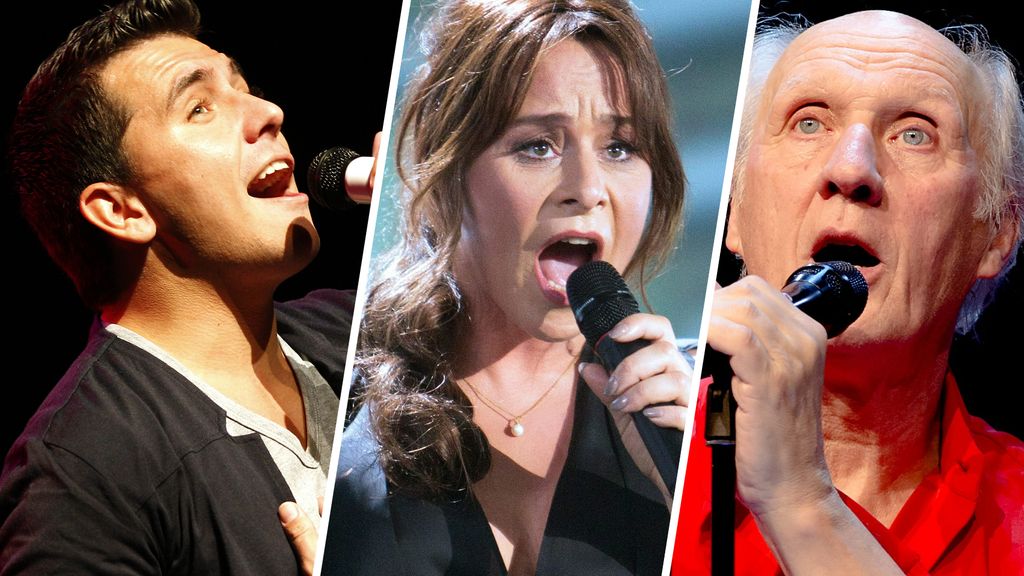
This article was last updated on March 14, 2025
Canada: ![]() Oye! Times readers Get FREE $30 to spend on Amazon, Walmart…
Oye! Times readers Get FREE $30 to spend on Amazon, Walmart…
USA: ![]() Oye! Times readers Get FREE $30 to spend on Amazon, Walmart…
Oye! Times readers Get FREE $30 to spend on Amazon, Walmart…
Table of Contents
Recognizing Dutch singers in AI music: ‘Harmful to artists’
The singing voices of Dutch artists can be recognized in music made with artificial intelligence (AI). Voices resemble those of Jan Smit, Trijntje Oosterhuis and Herman van Veen, among others, can be heard in a number made with AI.
That song was made with AI music generators Udio, Riffusion and Sonauto, says one of the makers, Matties Grooten. These are programs that create music with the help of artificial intelligence. Great experimented with the AI music makers and put together a song in which the Dutch artists can be recognized.
He and his colleagues from music studio Manglemoose asked the AI programs to make music in the style and with the singing technique and the voice of Dutch artists. The best results he assembled To a song with which he wanted to show that the AI companies use “over the back of artists” of the Dutch.
‘Herman van Veen’ sings who has stolen my voice?
With the rise of artificial intelligence that can make music itself, the question also came up whether the AI companies use copyrighted work for this without permission. The creative sector says that theft is taking place on a large scale, but in the Netherlands there are no cases of artists who oppose this through the courts.
The NOS has asked the artists from Grootens number if they have given the AI companies permission to use their singing voice. The foundation that has the rights to the work of the deceased Ramses Shaffy and representatives of Herman van Veen and Youp van ‘t Hek that this is not the case. The other artists did not respond to this question.
How does AI work?
With artificial intelligence (often abbreviated to AI from the English Artificial Intelligence), a computer program learns to do something or to make it based on examples. AI companies give the program examples so that they can recognize them. This is called ‘training’ of artificial intelligence. Once that has succeeded, you can order the AI program to make something that looks like those examples.
The fact that there are no lawsuits taking place, is partly due to the fact that it is difficult to prove that a number-made number is based on existing work. With the AI number in which well-known voices can be heard recognizable, Grooten wants to demonstrate that this is indeed the case.
“The song contains several Dutch artists I think: it is only possible that this is directly trained at the work of those artists,” says Grooten. “It is not fair that your voice will be used for an AI system, without compensation for it.”
‘Harmful for artists’
Although it is not a direct, hard evidence, it is a strong indication that the AI companies have trained their programs at the work of Dutch artists, says the Brein Foundation. The organization acts on behalf of the music industry against unlawful use of the work of artists.
“This is very harmful to artists,” says director Bastiaan van Ramshorst. “These voices are very recognizable. So the impression can arise that it is your number. While the quality of this example – let’s be honest – is miserable. For singers, the voice is the trademark. That is why they have to take action.” Brein is still investigating what the foundation can do.
The NOS has asked Udio, Riffusion and Sonauto to confirm or deny that they used the work of the Dutch artists to train their AI. There was no response from the American companies.
No copyright on singing voice
Artists who want to prevent their voice from coming up recognizable from AI programs cannot rely on copyright. A piece of music (text and composition) is protected by copyright, but the singing voice itself is not, explains Dirk Visser. He is professor of Intellectual Property Law at Leiden University and assists the creative sector as a lawyer.
Artists who want to object must then appeal to the Privacy Act, says Visser. “Because your voice is a personal data. You can’t just use it. If Paul de Leeuw or anyone can prove that an AI voice looks confusing a lot, a judge will soon say that this is unlawful.”
There is no Dutch artist who has taken the step to court yet, says Visser. “You have to have deep pockets and a lot of guts to litigate against these types of tech companies.” Also, no commercial songs with fake votes from Dutch artists seem to have been released, As happened to Drake and The Weeknd. “Everything is possible, but it is not happening yet. I am not saying that there is no problem with that, but that the problem is not big enough.”

Be the first to comment